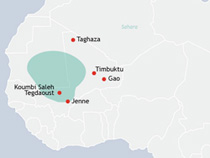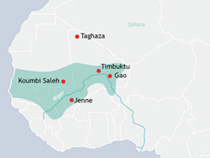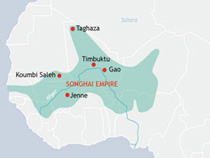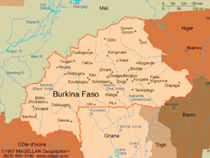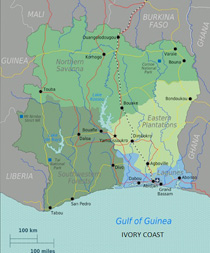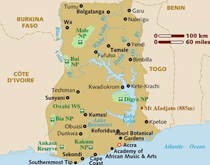It is impossible to speak about West African Ethnic Groups withouthaving a brief overview of the main countries where these incredibly diversified cultures developed. The African continent is vast with numerous ethnic groups scattered over extensive areas of desert, savannah, rainforests, mountainous regions and networks of rivers. The immense variety of the arts of Africa may in part be explained by the undisputable variety of the regions that make up this continent.
>> We will begin our journey by exploring the ethnic groups of sub-Saharan Africa; focusing principally on Mali and Burkina Faso. It is important to provide a synthesized overview of the historical and geographical environment in order to place the various ethnic groups within their context.
Mali
>> Historically Mali was part of three Sahelian Kingdoms. The Soninke-dominated Ghana Empire, the Mali Empire (which established Timbuktu and Djenne as major cities), the Songhai Empire. These kingdoms controlled Trans-Saharan trade of gold, salt and other precious commodities. A major Berber invasion triggered the collapse of these empires.
>> When the European nations established sea routes for trade, the Trans-Saharan trade economy collapsed as well. France invaded the weakened nation and occupied Mali from the early 1800s until its independence in 1959. Today, Mali is economically one of the poorest countries in the world.
>> Mali’s cultural and traditional richness also defines itself by its tremendous diversity. The Bamana are one of the largest ethnic groups of Mali. Various other ethnic groups such as the Soninke, Khassonke, Malinké and Mandé, co-exist in harmony along with the Peul, Voltaic, Songhai, Tuareg, Bozo, Dogon, and Moor. More than 40 languages are spoken collectively.
Burkina Faso
>> Burkina Faso was populated between 14,000 and 5000 BC by hunter-gatherers in the country's northwestern region; farm settlements appeared between 3600 and 2600 BC.
>> Burkina Faso was originally inhabited by the Bobo, Lobi, and Gurunsi peoples, with the Mossi and Gurma peoples immigrating to the region in the 14th century.
>> Centra Burkina Faso, also known as the Mossi kingdom became a French protectorate in 1897 and a separate colony in 1919. It was then partitioned among Niger, the Sudan, and Côte d'Ivoire in 1932, and was reconstituted in 1947.
>> Called Upper Volta by the French, it was renamed Burkina Faso on August 4th, 1984 to mean "the land of upright people”. The Republic of Upper Volta became independent on August 5th, 1960.
Côte d’Ivoire - Ivory Coast
>> The early history of Côte d'Ivoire is virtually unknown, though there are theories that a Neolithic culture existed. Oral history makes mention of various peoples and groups arriving and settling in the area, such as the Mandinka (Dyuola) people migrating from the Niger basin to the coast during the 1300’s.
>> In the early 1600’s Portuguese explorers were the first Europeans to reach the coast; they initiated trade of gold, ivory and pepper. France made its initial contact with Côte d'Ivoire in 1637, when missionaries landed at Assinie near the Gold Coast border (present day Ghana). Early contacts were limited to missionaries that made their way to the region; the coastline was unwelcoming and the indigenous people were feared.
>> In the 18th century, the country was invaded by two related Akan groups: the Anyi, who occupied the southeast region, and the Baoule who settled in the central region. In 1844, French Admiral Bouet-Williaumez signed treaties with the kings of the Grand Bassam and Assinie regions, placing their territories under French protectorate. French explorers, missionaries, trading companies, and soldiers gradually expanded their control of the area. Côte d'Ivoire officially became a French colony in 1893 granting all Africans in Côte d'Ivoire the status of French “subjects". On 7 August 1960, Côte d'Ivoire gained.
The Gold Coast - Ghana
>> Archaeological evidence indicates that present-day Ghana has been inhabited for thousands of years sharing its early history with other West African countries. The current borders of Ghana have only existed for approximately one hundred years. Its pre-colonial history is incomplete due to years of neglect on the part of western historians, but also due to African oral tradition that has omitted many details. Knowledge obtained from limited archaeological finds as well as the writing of the Greek historian Herodotus provide information about pre-colonial Ghana. According to Herodotus, the Egyptian Pharaoh sends out sailors along the African coastlines around 600 BC; it is also believed that Phoenician sailors landed on the Guinea coast. The early Kingdom of Ghana, sometimes called "Ghanata" was for centuries, one of the most powerful African empires and included most of present-day Senegal as well as some regions of Mali and Mauritania. The use of metals was known and the Kingdom was highly organized, with its laws and sophisticated economic system. During the 13th century tribes and clans fought and confronted each other, prisoners of war were often kept or sold in North Africa and Europe. Slave trade was taking place before the arrival of Europeans to West Africa.
>> From 1400 to 1800 - The Portuguese arrive on the coast of Guinea and build their first fortress which they named "Elmina" (the mine). The region soon saw the arrival of other Europeans as they were attracted by the gold, ivory and timber. During the next 350 years, trade in the area became highly competitive and the kingdoms of the Akwamu, Fante and Asante were amongst those to benefit from European trade.
>> 1874: The Gold Coast is officially proclaimed a British Crown colony as the British seek control of the Asante kingdom and their wealth of gold.
>> 2007: Ghana celebrates its 50 years of independence as the first sub-Saharan African nation.
Now that we have exposed a general overview of the environment, we may now proceed to learn and study about the ethnic groups that inhabit these geographically defined regions. This is the purpose of two sciences, Ethnography and Anthropology.
Ethnography and anthropology in “simple words”…
>> Ethnography may be defined as the principal data-gathering method in cultural and social anthropology.
Observation: the ethnographer is a first-hand researcher, who enters and participates within the context of a culture, rather than be the observer and examiner from a physical and intellectual distance.
On site study: this approach will allow the researcher to gain an intimate view of a living culture via kinship and gender roles, division of labor, rituals, concepts of ownership and other observable behaviors and, by participation.
>> Anthropology may be defined as the scientific study of the origin and behavior of man, including the development of societies and cultures, the result of the historic collection of impressions, facts and ideas about the identity of man, dispersed in his different social groupings.
The science of anthropology generally takes into account the characteristics of human beings, their origins, their environment, their social relationships and their culture.


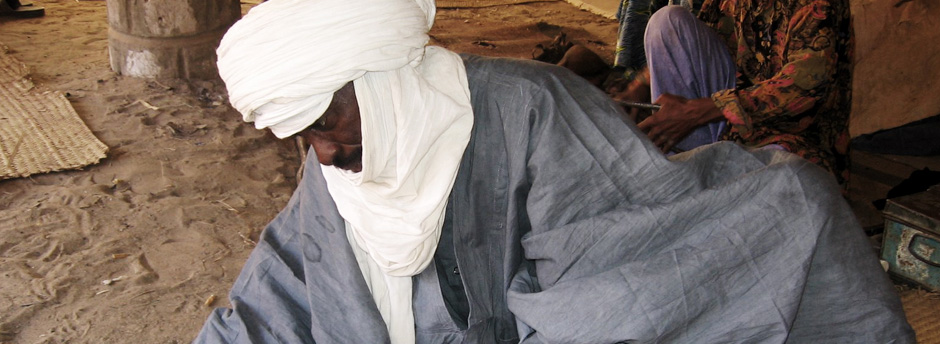
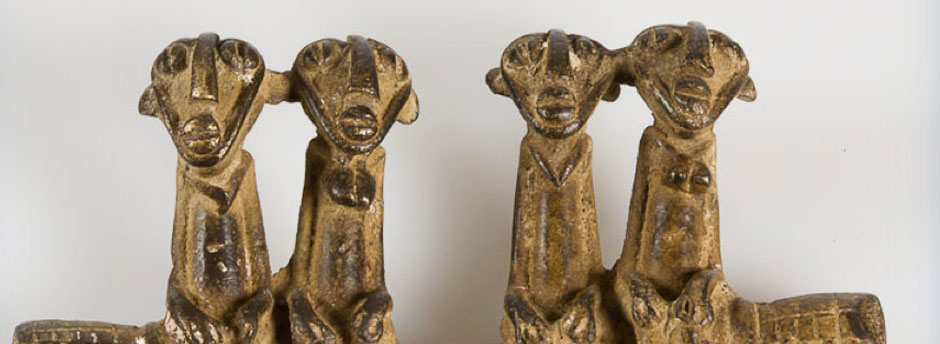

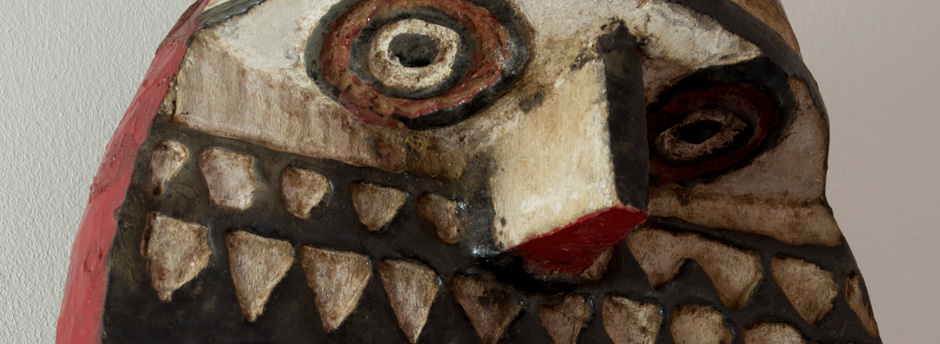
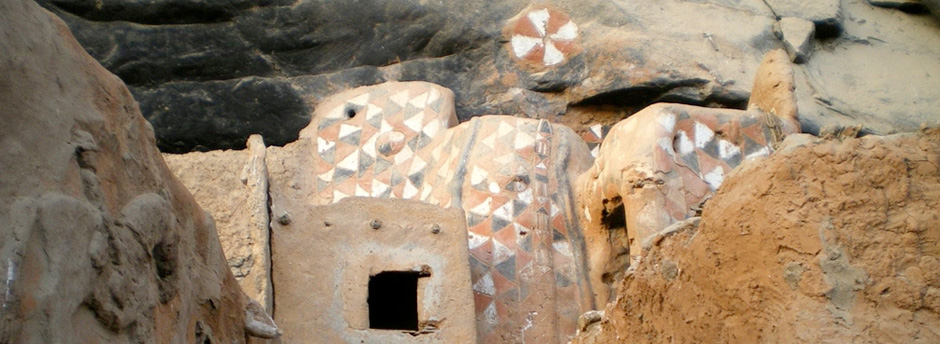
 1
1 2
2 3
3 4
4 5
5 6
6